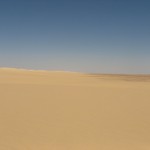Climate change, African women and the editor’s job: looking back on 2014
December is the month when most people look back on their year – but I think it’s just about not too late to share some of my highlights from 2014 and hopes for 2015. So, here goes, in no particular order:
Climate negotiations
I spent the first weeks of December in Lima, where I travelled with a team of SciDev.Net journalists to cover COP20 – the UN’s annual climate action meeting (you can read the coverage here). It was fascinating – as I noted in an editorial, the two-week meeting is something of a global fair where you live and breathe climate change politics, debate and activism. It’s almost as if a collective surge of adrenaline powers the COP wheel and gets things seriously spinning by the end of the negotiations in the second week. But walking through the corridors of the pop-up venue often left me with a slightly uneasy feeling. I kept thinking that there’s both value and a degree of waste in meetings such as this. There’s value in, for instance, raising awareness about climate change, airing key debates and perspectives from different sectors, and casting a public eye on the negotiations. But the modest progress achieved in each COP makes me question whether what the world gets out of this whole process is really worth the resources that go into it. That’s not to devalue its importance to climate action. I do think, though, that it needs to be seen in perspective – there’s a lot of action, particularly on adaptation, that happens outside the negotiations and governmental agreements. Part of the COP, certainly in Lima, did showcase that. But it was very much a parallel world. What if we had a scaled down COP and a second global meeting that attempts to reach some sort of consensus on best practice on mitigation and adaptation?
Remarkable African women
A big part of my job at SciDev.Net is to plan and deliver the Spotlights published on the site – these are collections of articles and, increasingly, multimedia features that tackle a key issue in science and development from several perspectives. The topic of the Spotlight published in June of 2014 is higher education in Sub-Saharan Africa and as part of that, I had the opportunity to meet and talk to several doctoral students, professors and higher education experts in Kenya and Tanzania. I was particularly impressed by the women I met. The conversations we had brought to the surface their history as scientists, as people – how they began and what inspired them – and as women charting a career path against the path set out by circumstances or social expectation. One is Shikoh Gitau, featured in this podcast, and another is Esther Marijani, featured here. My other interviews remain unpublished as yet – I’m aiming to get them online in 2015. I found each of the women remarkable for different reasons but mostly the passion and drive to both make themselves and make a contribution to their countries’ development.
Editor, explained
In September I attended a conference on urban sustainability (and wrote about it here), partly in preparation for the last Spotlight published in 2014. On the bus journey back after the meeting ended I had a long conversation with a PhD student from Portugal. A big chunk of it was about what I do as an editor. It was all a bit of a mystery to this student (and not just her – introducing myself initially drew blank looks on more than one occasion at the meeting); and to unravel that mystery we talked about everything from the impact of scientific work – that it’s about more than publishing in journals – to the fact that training in science communication is sorely lacking in most academic programmes. I certainly had none in an otherwise very comprehensive and interdisciplinary education in the sciences. So one of my hopes for 2015 is for more opportunities to demystify the world of a science editor. I have little doubt that many students out there could benefit from considering it as a career path, and scientists could benefit from a better understanding of how to write about their research for a wider audience (something that SciDev.Net’s practical guides already offer advice on).
And..
I’ll add to these highlights the imagery and sound that are now a larger part of the features I produce or commission with colleagues, mainly Lou del Bello and Jon Spaull. They have such storytelling power – not traditionally the stuff of science journalism and possibly why it took so long to get on that path. But it’s never too late to start a good thing.
 Previous Post
Previous Post